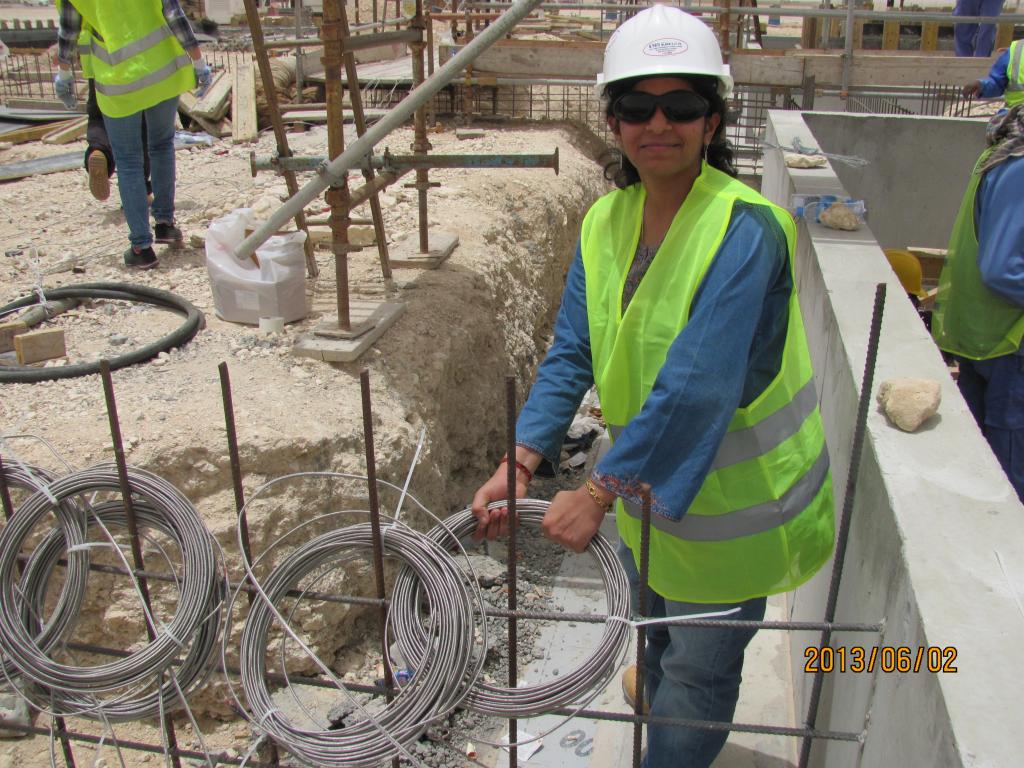
Innovative and exciting research is being performed each and every day by graduate students across the globe in all walks of chemical engineering. This post is a part of the Graduate Research Spotlight Series, which seeks to highlight some of the research being performed by AIChE's graduate student members. If you know of an AIChE member who is currently performing outstanding graduate research and has recently published a first-author paper, please let us know at ypc@aiche.org.
Where are you from?
College Station, TX
What university are you completing your graduate degree at?
Texas A&M University
What field/program are you enrolled in?
Chemical engineering
What type of degree are you getting?
PhD
Where did you receive your undergraduate degree?
India
What was your undergraduate major?
Chemical engineering
How many years have you been a member of AIChE? *
4
In layman’s terms please describe your specific field and what impact it may have on society.
I work in the field of process safety with a specific focus on liquefied natural gas (LNG) safety. Process safety involves a blend of engineering and management skills to prevent catastrophic accidents like explosions, fires, and toxic releases, arising from different type of substances.
Gas extracted from one place can be liquefied to LNG and transported to other places. With the shale gas boom taking place in several parts of the world, the LNG industry is increasing rapidly in both onshore and offshore areas. It is important to thoroughly analyze the potential hazards and consequences due to LNG release from containment. In my research I use both experimental and computational methods to understand the behavior and characteristics of LNG released on water during transportation or marine operations. This will help to reduce the risk to people, property and environment in the wake of any accident.

Which chemical engineering topics best cover your research topic?
Process safety, consequence modeling
What is the title of your recently published research article?
Small-scale experimental study of vaporization flux of liquid nitrogen released on water. (Article available here.)
Describe the highlights of your recently published paper.
A failure of a liquefied natural gas (LNG) tanker can occur due to different types of ship collision or rupture in loading/unloading lines resulting in spillage of LNG on water. Upon release, a spreading liquid can form a pool with rapid vaporization, leading to the formation of a flammable vapor cloud. Safety analysis for the protection of public and property involves the determination of consequences of such accidental releases. The hazards associated with accidental spills of liquefied natural gas on water are a cause for concern as it can result in hazards near the leak source or distances away from the leak source, if atmospheric dispersion of vapors is strong. The rate at which vapor is generated largely depends on the rate of heat transfer from water to cryogenic liquid (LNG). The evaluation of consequences resulting from an accidental spill of LNG on water involves proper determination of this rate at which flammable hydrocarbon vapor is produced. This is studied as source term modeling. In this work, the convective boiling model for the transfer of heat from water to cryogenic liquid is investigated through small-scale experiment which is performed in Qatar. A continuous spill of liquid nitrogen reflecting an accidental spill of LNG on water is studied. The study is also performed to independently validate the vaporization model for cryogenic liquid boiling on water and verify the film boiling regimes of cryogenic liquids boiling on water. The study provides a basis for predicting the heat flux from water to cryogenic liquids for source term modeling.
To learn more, see Nirupama's recently published article.
What are your plans after completing your graduate degree?
I plan to work in the industry.
What motivated you to pursue your graduate work?
Chemical Engineering is a very broad field and I wanted to specialize in a particular field like process safety within chemical engineering. I chose graduate school to do this. The grad school gives you new skills and opportunities to advance your career through courses, certifications and research. It also provides opportunities to network with range of experts from the field and learn from them. Research also works like a training ground to understand your full potential for professional growth. It will help you tangibly in future to lead teams and take responsibility at work.
Advancing my capacity to excel in my career is a smart reason for considering graduate education.
What is your favorite moment in chemical engineering history?
My favorite moment happened when my first publication was published. I saw happy to see the reflection of my work in the paper.
If you weren’t a ChE what would you most want to be?
Surgeon, I like attention to detail.
What is the most interesting place you have ever lived?
College Station, I used to be homesick initially when I came to USA, but now it has become my home. These days, I miss college station when I visit my home country.
What was the best meal you ever ate?
After a busy day of experiments in the open field, I had a traditional falafel plate in Doha. It was mouth melting and delicious.
How many ChEs does it take to screw in a light bulb?
Wouldn't the AIChE team know that?
Do you have any advice for current or future graduate students reading ChEnected?
Actively involve in all networking opportunities. Stay connected to AIChE. The YPC is an amazing platform to meet fellow professionals like you.
You can reach Nirupama through her LinkedIn profile.


